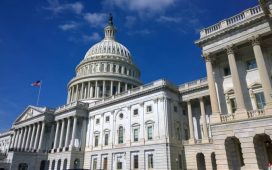UK construction grows despite fall in housing
The UK’s construction sector continued to expand in June, although it lost some momentum amid a fresh fall in housebuilding, according to a survey.
A slower rise in new orders was also recorded, in some cases linked to election uncertainty, but the pace of job creation picked up. Meanwhile, the rate of firms’ input cost inflation accelerated from May, but remained muted.
The headline S&P Global UK construction purchasing managers’ index (PMI) fell to 52.2 from 54.7 in May, but remained above the 50 no-change mark that separates expansion from contraction for the fourth month running.
The main driver of growth continued to come from commercial activity, which increased markedly again in June. That said, the rate of expansion softened from May’s two-year high. Civil engineering activity also slowed.
The only area to record a drop in activity was housing, where output fell again following the first increase in 19 months during May.
Andrew Harker, economics director at S&P Global Market Intelligence, said:
Continued growth of the UK construction sector in June meant that the sector has recorded sustained expansion throughout the second quarter of the year. While there were signs of a slowdown in the latest survey period, most notably around housing activity, firms indicated that a slowdown in new order growth was in part related to election uncertainty. We may therefore see trends improve once the election period comes to an end.
Moreover, confidence in the year ahead outlook remained strong and firms increased employment to the largest extent in ten months.
In terms of inflation, there remains little sign of cost pressures picking up to any great extent, encouraging firms to expand purchasing activity. Supply-chain conditions also remained favourable.
Updated at 10.37 CEST
Electric car sales grow ‘robustly’ in June
The UK new car market has hit the half-year million motors mark for the first time in five years, after new car registrations rose in June by a modest 1.1% to reach 179,263 vehicles, according to new figures published by the Society of Motor Manufacturers and Traders (SMMT).
As a result, 1,006,763 new cars have been sold so far this year, up 6% year-on-year but still down 20.7% on 2019, before the Covid-19 pandemic.
June’s market growth was driven primarily by the fleet sector, where uptake rose by 14.2%, while demand from private buyers fell for the ninth consecutive month, down 15.3%.
Demand for electric vehicles grew “robustly” in June, with plug-in hybrid volumes up by 30% to reach a 9.3% market share, while hybrid electric vehicles rose by 27.2% to take 14.9% of the market.
Both powertrains also outpaced battery electric vehicle growth, which rose by 7.4% and took its highest monthly share this year, accounting for 19% of all new vehicle registrations.
Mike Hawes, the SMMT’s chief executive, said:
The year’s midpoint sees the new car market in its best state since 2021 – but this belies the bigger challenge ahead. The private consumer market continues to shrink against a difficult economic backdrop, but with the right policies in place, the next government can re-energise the market and deliver a faster, fairer zero emission transition.
All parties are agreed on the need to cut carbon and replacing older fossil fuel based technologies with new electrified powertrains is the essential step to achieving that goal.
Updated at 10.31 CEST
Smith & Nephew top FTSE 100 riser as Cevian builds stake
The artificial hips and knees maker Smith & Nephew is the top riser on the FTSE 100 index this morning, climbing more than 6%, after the Swedish investment firm Cevian Capital, known as an activist investor, disclosed a stake of about 5% in the company.
Barclays shares gained 1.6% after the British bank said it had agreed to sell its German consumer finance business to Germany’s BAWAG Group for a “small premium to net assets” in cash.
As the UK heads to the polls in parliamentary elections that could end 14 years of Conservatives in government and see Labour leader Keir Starmer installed as prime minister, Gervais Williams, head of equities at the London fund manager Premier Miton, has looked at what this may mean for the economy. He told Reuters:
Both parties are quite similar in economic policies. There will be some change, but most of it is continuity when you compare with what’s happening in France or Germany.
The UK is actually an island of economic stability relative to the other elections going on around.
Trading activity is expected to be muted because US markets are closed for Independence Day.
Updated at 10.32 CEST
Here is our full story on new car sales in the UK:
Carmakers have sold more than a million cars in the UK in the first half of the year for the first time since before the coronavirus pandemic as the sector gradually recovers from years of turmoil.
Preliminary data from the Society of Motor Manufacturers and Traders, the UK industry’s lobby group, suggested that the industry would sell about 2m cars over the year, also for the first time since 2019.
Mike Hawes, the SMMT’s chief executive, said that 2m sales for the year would be “a bit below par” but that the recovery was a relief for the industry after years of struggles.
However, the growth was “almost entirely business and fleet sales” rather than private buyers, he told BBC Radio 4’s Today programme. “Given that most people buy with some kind of finance, with inflation high and interest rates high, it has made the cost of purchase more expensive.”
Updated at 10.14 CEST
Over 20,000 Tesco staff to share £30m from share schemes
More than 20,000 Tesco staff, mainly shopfloor workers in stores and distribution centres, will share in a windfall profit of more than £30m after share savings schemes have matured.
The windfall is created by the strong growth of the Tesco share price, which was £3.06 earlier this week. Those who joined the schemes are able to buy shares at a discounted price of just £1.88 or £1.98 each and either hold on to them, or sell them and make a profit on each share.
A Tesco shopfloor worker who invested the average £68 a month for the last five years stands to pocket around £6,640 from their £4,080 investment, a profit of £2,560, Tesco said.
The news comes just weeks after Tesco’s chief executive Ken Murphy came under fire for his near-£10m annual pay package.
Emma Taylor, Tesco’s chief people officer, said:
It’s great news that more than 20,000 colleagues will benefit this year from our share schemes. This is just one of the many benefits available to our colleagues, and the strong performance of the schemes this year is a reflection of their hard work and the brilliant job that they do serving our customers every day.
Updated at 10.19 CEST
FTSE 100 opens higher as UK heads to the polls
The FTSE 100 index has opened about 50 points higher at 8,222, a 0.6% gain, as millions across the UK head to the polls. The ballot boxes close at 10pm this evening.
Other major European stock markets are also making further gains, partly on the back of optimism about US rate cuts in recent days, and hopes that a majority for Marine Le Pen’s far right party can be avoid in the second round of elections in France on Sunday.
The German Dax is trading 0.4% higher, while the French CAC rose 0.7% and Italy’s FTSE MiB gained 0.5%. The US markets are closed today for Independence Day.
Derren Nathan, head of equity research at Hargreaves Lansdown, said:
Opinion polls are suggesting one of the biggest landslides the nation has ever seen for Labour, but they have been wrong before.
In a shortened trading session ahead of today’s 4 July celebrations, investors have been digesting weak jobs data in the US. Private payroll growth came in at 150,000 for June, below analyst forecasts. And weekly jobless claims continued their upwards journey for the ninth week in a row. All eyes will now be on tomorrow’s non-farm payroll numbers.
There was also weak data from the US services sector with the US ISM Services PMI falling 5 points sequentially in June to 48.8, way short of the 52.5 consensus expectation. Perhaps no surprise that 10-year Treasury yields lost 8 basis points to 4.355%.
Conversely, the improving outlook for a Fed rate cut helped US equities breach new records, with the tech-based Nasdaq Composite up 0.9% to 18.188.30 and the broader S&P 500 climbing by 0.5% to 5,537.02 last night.
Microchipmaker Nvidia resumed its upwards trajectory, climbing 4.6% after some recent profit taking. And Tesla rose by a further 6.5% following the previous day’s 10.2% gain that was triggered by better than forecast vehicle deliveries. With the shares up over 40% in the last month, expectations are riding high ahead of earnings season.
Brent Crude has given up some of yesterday’s gains, reflecting the weak US economic data, and is trading 0.8% lower. But the global benchmark still sits at close to $87 a barrel, supported by a sharp fall in US oil inventories, and concerns that Hurricane Beryl could disrupt production in the Gulf of Mexico.
Updated at 10.19 CEST
Hawes explained that the more common electric vehicles become, the more their price is going to come down, but there are limits – batteries are more expensive than in a traditional petrol or diesel car.
As you develop these vehicles at scale, you can drive down these costs to a certain extent, but the raw materials, in particular, the battery is a lot more expensive. Of an electric vehicle that battery is about 40% of total cost of the car.
The Red Sea disruption has added to cost pressures along with Russia’s war in Ukraine, he said.
A number of our vehicles that are sold in the UK come from Asia. They’re no longer going through the Suez [canal]. They’re going around the Cape. That adds two to three weeks in terms of transit and back again. And obviously that adds cost. So that’s just yet another strain.
Updated at 09.32 CEST
How is demand for electric vehicles holding up, SMMT chief Mike Hawes was asked earlier.
He said it was “OK” – adding that it will take time for electric cars to get into the mass market, and that the journey will be bumpy.
It was OK in June, but what we have seen is something of a plateau flattening out. When these vehicles were first on the market, there really was high demand for them, because those were the early adopters. We need to get that from the early adopter phase into the mass market. That is never going to be smooth. So the manufacturers are doing all they can to stimulate that demand with really attractive deals. But given the economic conditions and the fact that these are still vehicles that are more expensive than petrol and diesel cars that preceded them, there is still something of a challenge.
Updated at 09.14 CEST
Introduction: UK new car sales hit 1m in first half for first time since 2019
Good morning, and welcome to our rolling coverage of business, the financial markets and the world economy.
It’s general election day in the UK. Voting has now begun and polling stations will be open until 10pm. Polling suggests it could bring an end to 14 years of the Conservative party in government, and lead to Labour opposition leader Keir Starmer being installed in Downing Street as the new prime minister. You can read more on our main election blog here:
New car sales in the UK grew by 5% year on year in June, according to preliminary data from the industry body, the Society of Motor Manufacturers & Traders.
It means that the number of new cars leaving forecourts has exceeded 1m in the first half of the year, the first time since 2019 it has passed that milestone.
Mike Hawes, the SMMT’s chief executive, said on BBC radio 4’s Today programme:
It’s kind of a relief to get there. We know we’re clearly heading for around 2m new car sales this year, which is a bit below par. But obviously things are changing in terms of the number of vehicles potentially being bought. But to get there, given all the difficulties we’ve had over the last five years and indeed beyond that, it’s a real boost for the industry.
It’s almost entirely business and fleet sales. There’s a number of reasons behind that. Obviously the backdrop of the economic conditions isn’t great, and households are on a squeeze. And most people, private buyers, tend to buy through finance with inflation high and interest rates high, it’s made the cost of purchase more expensive.
But the carrot has been for the businesses, the incentives, the company car tax that is there for the fleet and the business buyer, has stimulated demand, especially for electrified vehicles. So that’s what’s really driving the growth.
The market share of pure battery electric new cars remained on a par with last year, at around 16-17%. Final figures for June will be published by the SMMT at 9am.
In Germany, factory orders fell unexpectedly in May, declining by 1.6% on the previous month. Economists had expected a rise of 0.5%.
The minutes of the US Federal Reserve’s June meeting showed that policymakers acknowledged the US economy appeared to be slowing and that “price pressures were diminishing”. But they still opted for a wait-and-see approach before committing to interest rate cuts, according to minutes of the 11-12 June session.
The minutes, which were released last night, noted a weak May reading in the consumer price index as one among “a number of developments in the product and labor markets” that supported a view that inflation was falling.
Wage growth had slowed, some officials noted, while others pointed to price cutting among major retailers and reports from their own business contacts that “pricing power had declined.”
However, policymakers concluded that more time and data was needed before they could decide on a rate cut.
Officials “did not expect that it would be appropriate to lower the target range for the federal funds rate until additional information had emerged to give them greater confidence that inflation was moving sustainably toward” the 2% target, the minutes said.
The Agenda
-
9am BST: UK SMMT new car sales for June
-
8.30am BST: Eurozone, France, Germany, Italy construction PMIs for June
-
9.30am BST: UK S&P Global construction PMI for June
-
12.30pm BST: ECB monetary policy meeting accounts
Updated at 09.11 CEST





